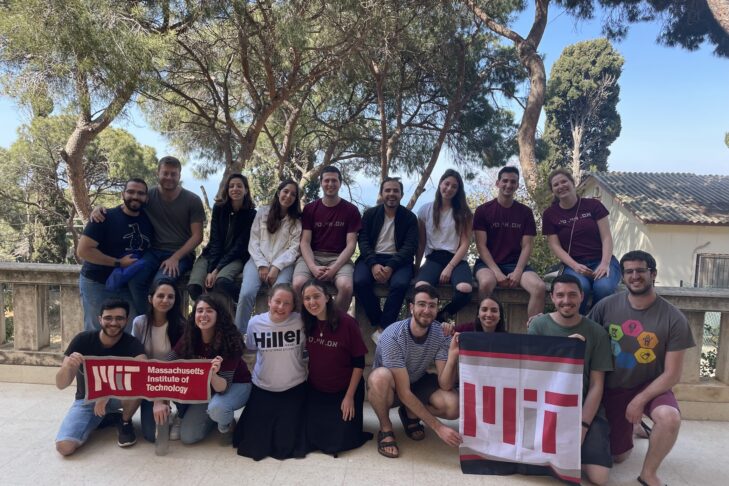ConnecTech is a year-long fellowship for MIT and Technion Jewish students. The primary focus is on student interaction—creating personal bonds between small core groups of students at each institute and strengthening a sense of Jewish peoplehood. For more information or to read our Fellows’ bios, visit our website.
What does it mean to be a Jew? Growing up in an Orthodox household, I never gave this much thought. I kept kosher, Shabbat and studied Torah every day. I was Jewish, and the ramifications of that permeated my day-to-day.
Life is more complicated now. I’m no longer observant, and although I’m a proud Jew (it’s still the first thing I check for when looking someone up on Wikipedia), it’s difficult to feel connected. This is unfamiliar territory to me, and I often wonder whether there’s a way to renew my connection with Judaism, absent the religious practices. Until recently, the solution to this problem eluded me.
Enter Israel.
In 2012, between high school and college, I spent a year in yeshiva on a moshav in Beit Meier. It was my first trip to Israel, and my experience with the country was almost entirely through a religious lens.
In 2019, I returned for a brief visit as a freshly minted, unobservant Jew. I spent the first night of Chanukah in Tel Aviv, and was shocked to see the street come to a standstill when it was time to light the menorah. Despite the secular nature of the city, people obviously still felt part of the community and the culture. The experience gave me hope that I, too, could find a way to connect with my Judaism, despite my increasingly secular lifestyle.
For this reason, counterintuitive as it may be, my connection to Israel has grown as my connection to religion has waned. I applied for the ConnecTech fellowship with the hope of experiencing Israel in this new light and expounding upon what I had observed that Chanukah.
The trip’s extensive programming explored Israeli society and culture from many different angles. Thanks to this, throughout the week, I was able to observe how each member of our group connected to Judaism and the Jewish community in a different way. This shouldn’t be surprising; our cohort was a microcosm of Israeli (and pan-American) society, with people coming from a diverse array of backgrounds. Sometimes these differences manifested in obvious ways, such as an activity where each of us had to define values that we believed were central to Judaism. Other times it was less apparent, though always lurking just below the surface.
And yet, despite these differences, it seemed that a common denominator to this connection was a deep (and perhaps subconscious) pride in and love for Israel. This was most evident when talking with the Israeli members of our cohort about Israeli technology, industry and research, even if it was outside one’s own area of interest. Amongst the participants from MIT, despite many of us never having lived in Israel for more than a year, you could sense the feeling of pride in the Jewish homeland.
I’ll never be Israeli, so my innate ability to connect to Judaism through this avenue is limited. That said, the ConnecTech trip opened my eyes to ways by which I can make this connection my own. Perhaps that looks like collaborating with an Israeli lab, presenting my research at an Israeli conference or memorizing all of the words to Itay Levi’s latest song. I don’t have all of the answers yet, but after this trip, I think I’m well on my way to figuring them out.
For these reasons alone, I would have considered the ConnecTech trip a great personal victory. Yet, despite this, the part of the program that had the greatest impact on me was something less expected: the people. I was wholly unprepared for the instantaneous sense of community I felt within our cohort. I met people that I would have never met otherwise, from backgrounds both similar to and different from my own. Despite spending only six short days together, I feel like I got to know many of the ConnectTech fellows on a deep and personal level, and I hope, and believe, that these relationships will continue to flourish. After all, as they say, Kulanu Mishpacha (though perhaps only fifth cousins).
This post has been contributed by a third party. The opinions, facts and any media content are presented solely by the author, and JewishBoston assumes no responsibility for them. Want to add your voice to the conversation? Publish your own post here. MORE


